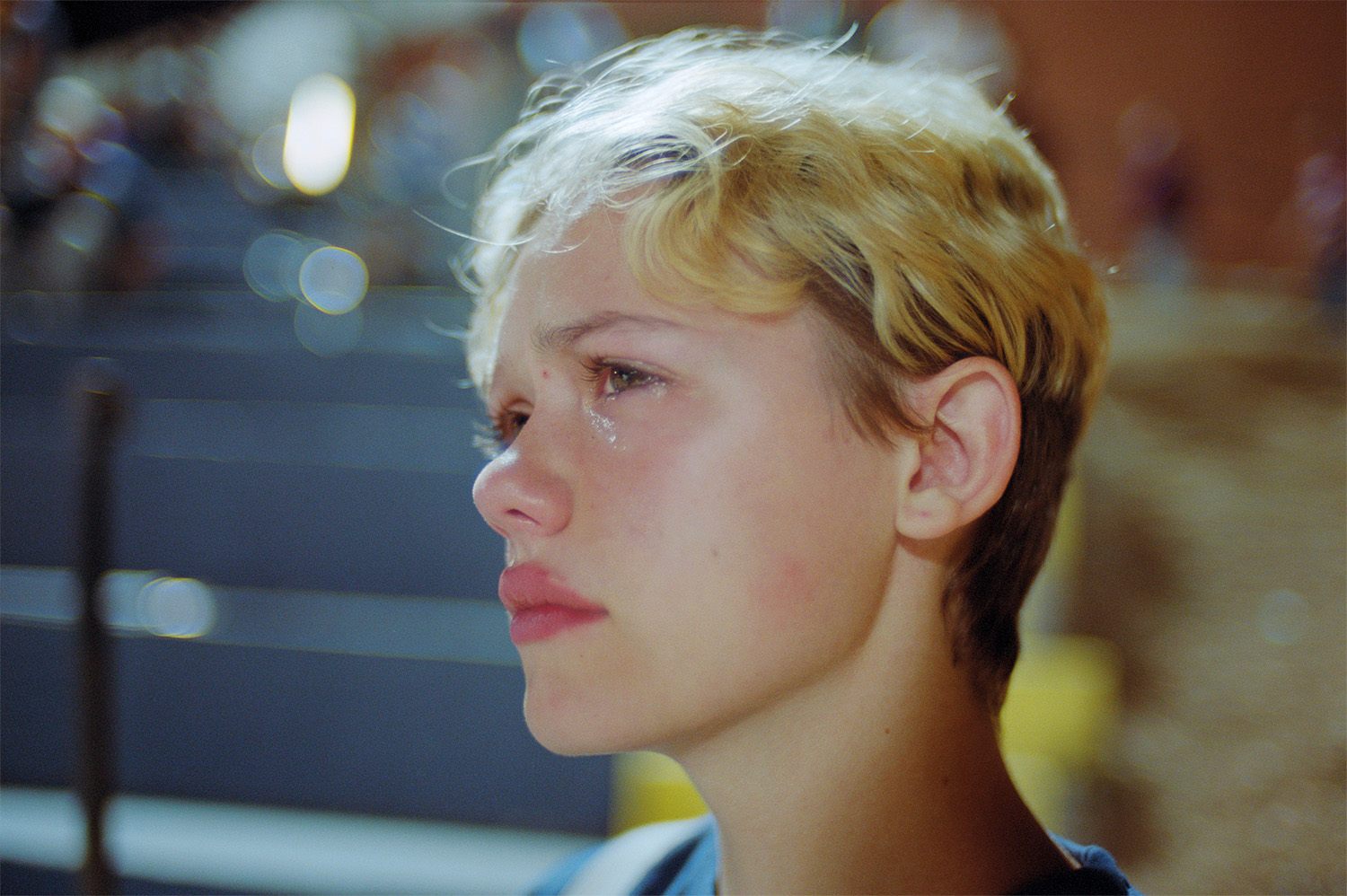2016 is etched in the records of history as a pivotal moment. Trump was elected as the president of the United States, and it seemed the whole world was tilted on its axis. He also secured a large share of the rural vote, which only fuelled the stereotype conjured up by the words ‘rural’ and ‘south’ — communities that are white, working-class and pro-Trump.
This was also the year that Japanese photographer Fumi Nagasaka, who had lived in New York City for a decade, kindled a curiosity for the south, and first ventured to Dora, Alabama, by recommendation from her friend who grew up there, Tanya Rouse. Over the course of six years, Fumi built an archive of the local townspeople and has now compiled her findings into a new book entitled Dora, Yerkwood, Walker County, Alabama, published by Gost.
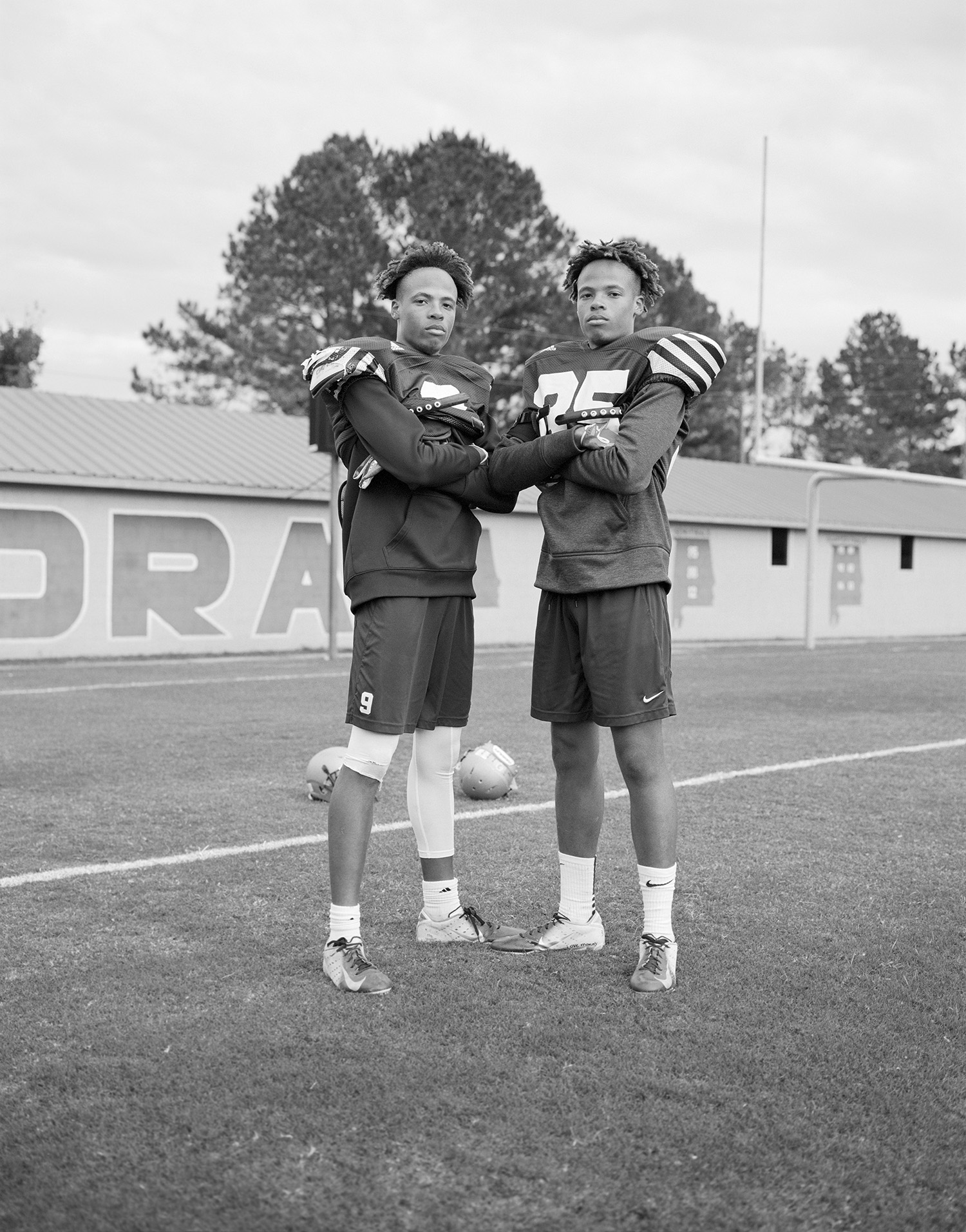
But this book is no mere reflection of political upheaval, Trump or economic disparity. It’s about finding joy in life. There are, of course, subtle echoes of the residents’ way of life presented throughout the book: sheetless beds, worn-down shopping centres, untamed gardens tightly packed with horses, scruffy cats and basketball hoops missing their threads. Portraits of family members and Jesus hang on walls of homes, alluding to the strong sense of community, faith and religion that holds the town together. Peruse further, though, and you’ll spot familiar coming-of-age tales: teenagers dressing up, playing in the trees and dancing on that delicate thread between innocence and wisdom. They’ll be attending homecoming dances, football matches, cheerleading training, local choirs and church on Sundays. And despite having little money, Fumi was struck by their warmth. “They’re so happy to have each other and live a life every day,” she says.
As an outsider, Fumi found it difficult to gain the trust of the residents – it was something she had to earn diligently. “I noticed that the younger generation were very open-minded, but older generations were more conservative and backwards,” she says. Unlike in New York, where Fumi regularly photographed and “never had any issues”, Dora locals wondered if she was going to sell the pictures online or charge them money. “I needed to be vulnerable and tell them who I am and what I really do so they can trust me and open up,” she says. As a result, she reached out to the local paper, Daily Mountain Eagle, to ask if they could write about her project and made sure to be honest about her motives. It also helped that her friend Tanya had relatives in the town, who inevitably became her muses.
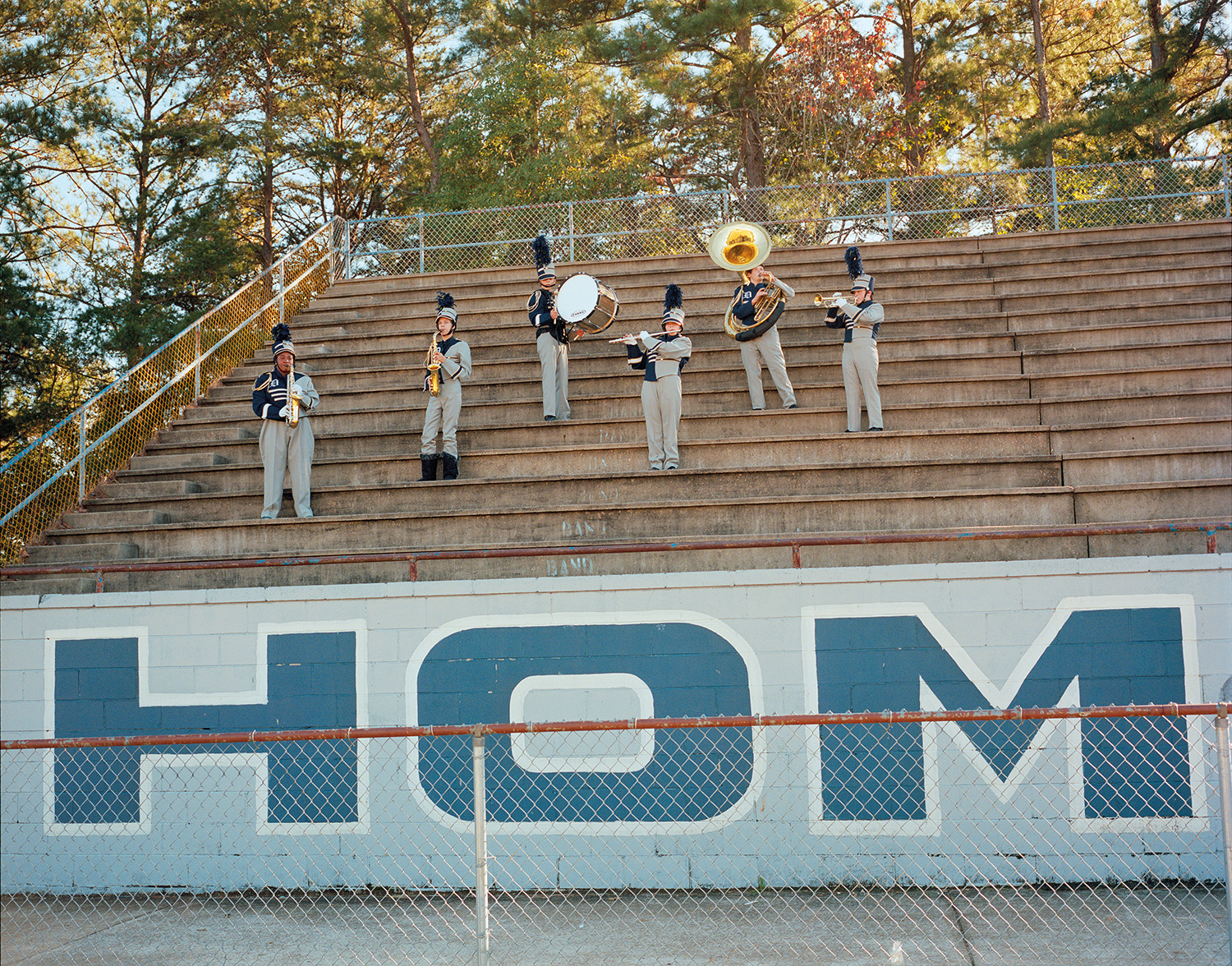
From thereon, Fumi’s bonds with the locals evolved into relationships akin to familial ties — Fumi could visit at any time, knock on the door and be welcomed. “Every year, I went back to the same town and photographed the same people, and the kids grew up very fast – it was a joy to watch them grow,” she says. “It became like my second home.” One girl, in particular, was more like a sister to Fumi. The girl would observe her at work and developed an interest in photography. Fumi entrusted her with a camera, allowing her to capture whatever her heart desired, like snapshots of her cherished pet rabbit. “In small towns, the reality is they feel like they can’t do anything,” Fumi says, “they need something to see and think about and to know they have options outside of what they thought they have.”
In the opening pages of Dora, Yerkwood, Walker County, Alabama, you’re greeted by a cluster of three images: a hanging portrait of a man, similar to the school pictures you used to get in the 90s; an ethereal shot of the church; and a freckled boy seated in his burgundy-toned car. This boy is the second youngest of five siblings living in a decaying house isolated from the community. “People thought they were a little different,” says Fumi. She noticed how they’d play with each other from dusk to dawn in the front yard — a spot where imagination ran free against a backdrop of endless summer sun and where the best of the golden light was cast for 10 minutes each day. “The kids were running away from me and wanted to play, but I really needed to focus on photographing them,” she says of the moment she first documented the siblings. With her medium format camera in tow, Fumi rode the wave of adrenaline with a game of hide and seek and shot some remarkable pictures of the kids in motion, candid facial expressions and all. This one image of the boy, however, is a favourite of Fumi’s, “The car was broken; there were no windows, and it was falling apart. But he was so proud of himself and wanted to show me that he owns his own car. It was a really beautiful moment”.
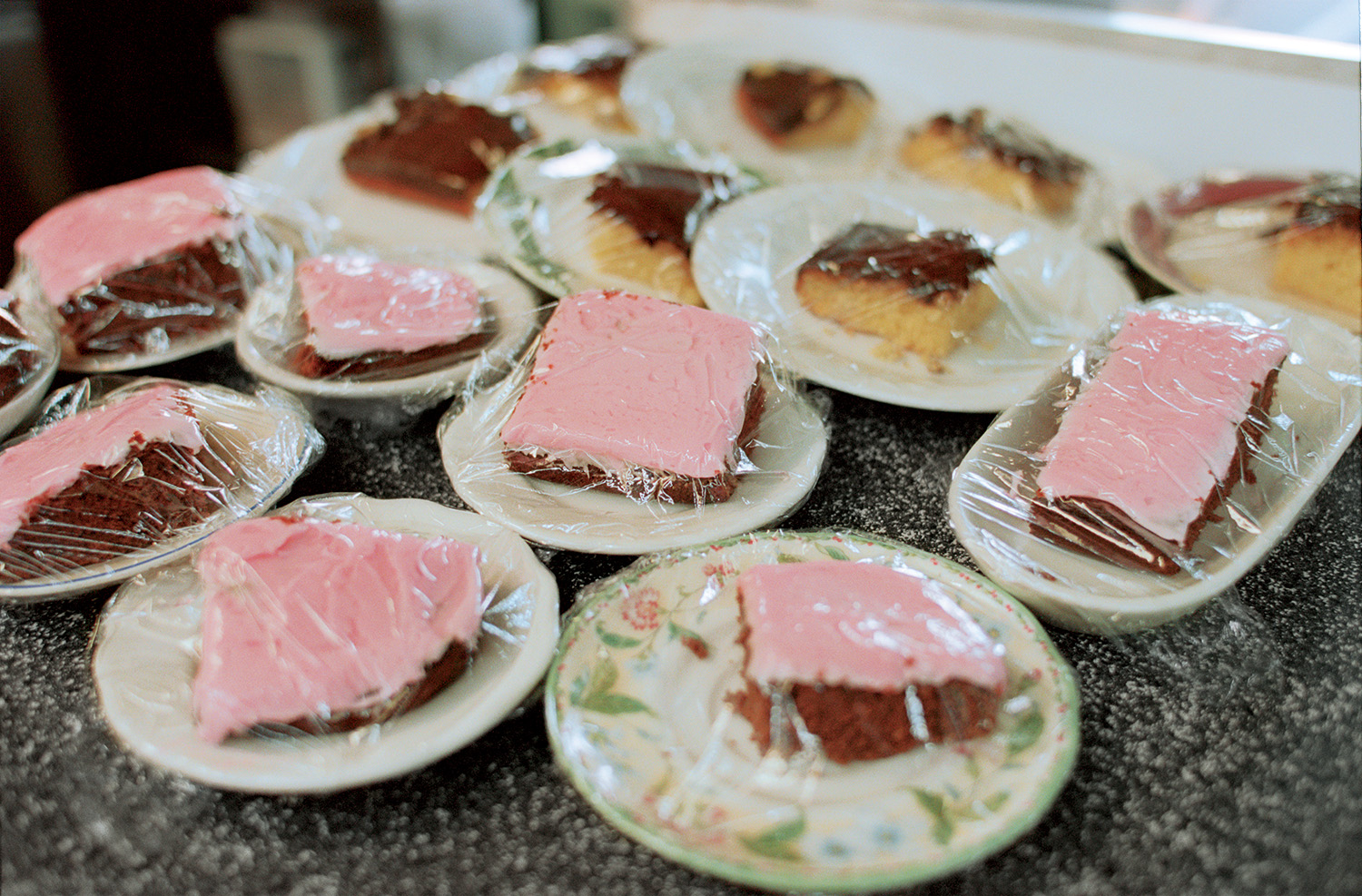
As time marched on and the children she photographed grew up and left the town, the project reached its natural conclusion. In 2021, three of Fumi’s pictures were selected for the Taylor Wessing Portrait Prize exhibition, and she made sure to notify the local newspaper once more. One of the mothers replied, saying she couldn’t afford the journey to London but expressed immense joy in knowing that her daughter’s and other children’s images adorned the walls of a prestigious museum.
Fumi’s perspective on photography underwent a profound transformation during this project. Having worked on street-casting and fashion editorials beforehand – which often keep a distance between the subject and photographer – she now strives to create a symbiotic dynamic through her practice. She seeks not only to understand her subjects but to establish a genuine friendship, too. “I want those kids to have a spotlight; it’s not about me, it’s about the community,” Fumi finishes. “I wanted to make sure that [this project] came from a very pure place. This is a celebration of the town and a love letter to the community from me.”
‘Dora, Yerkwood, Walker County, Alabama’ is available to pre-order here
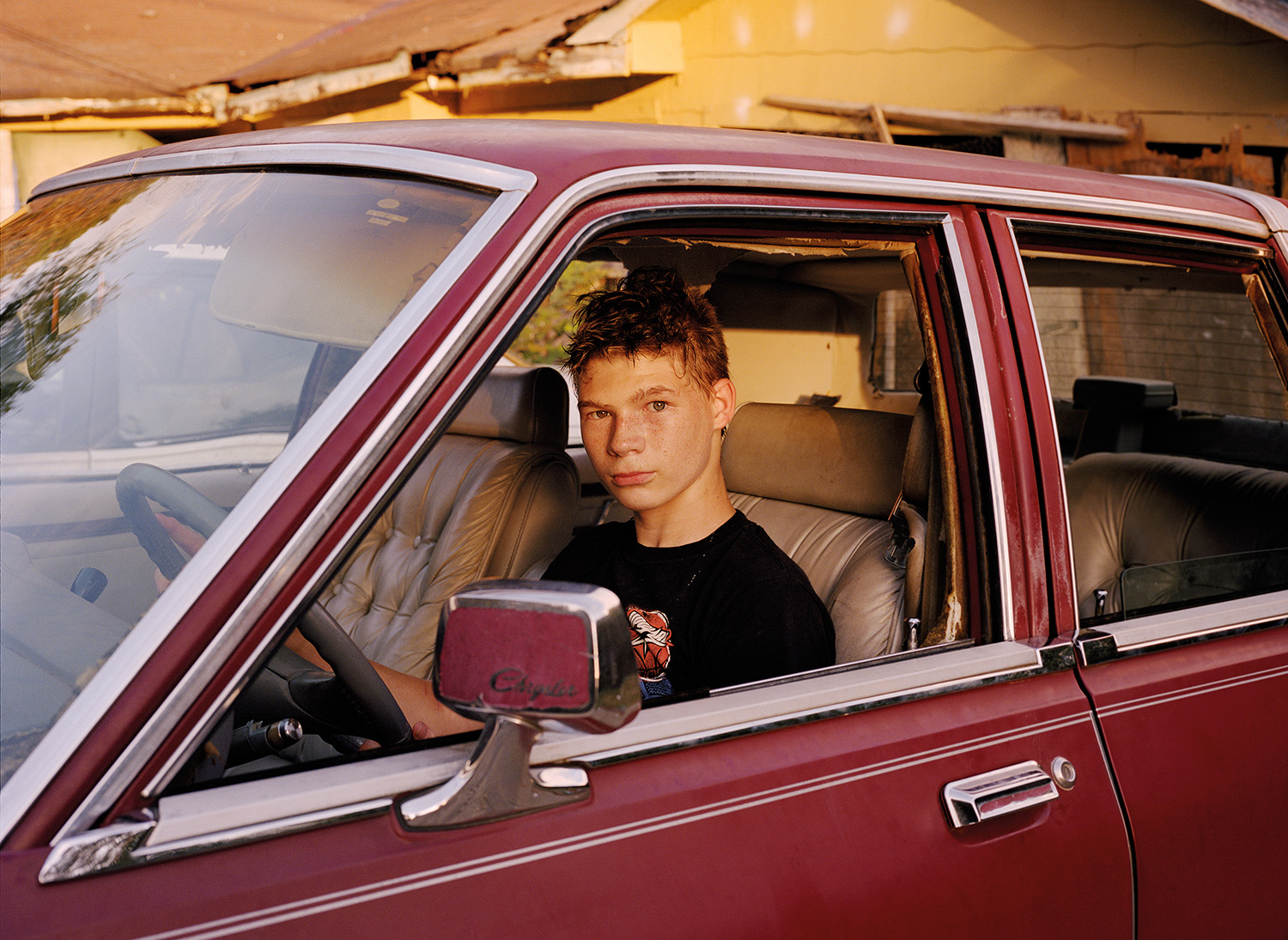




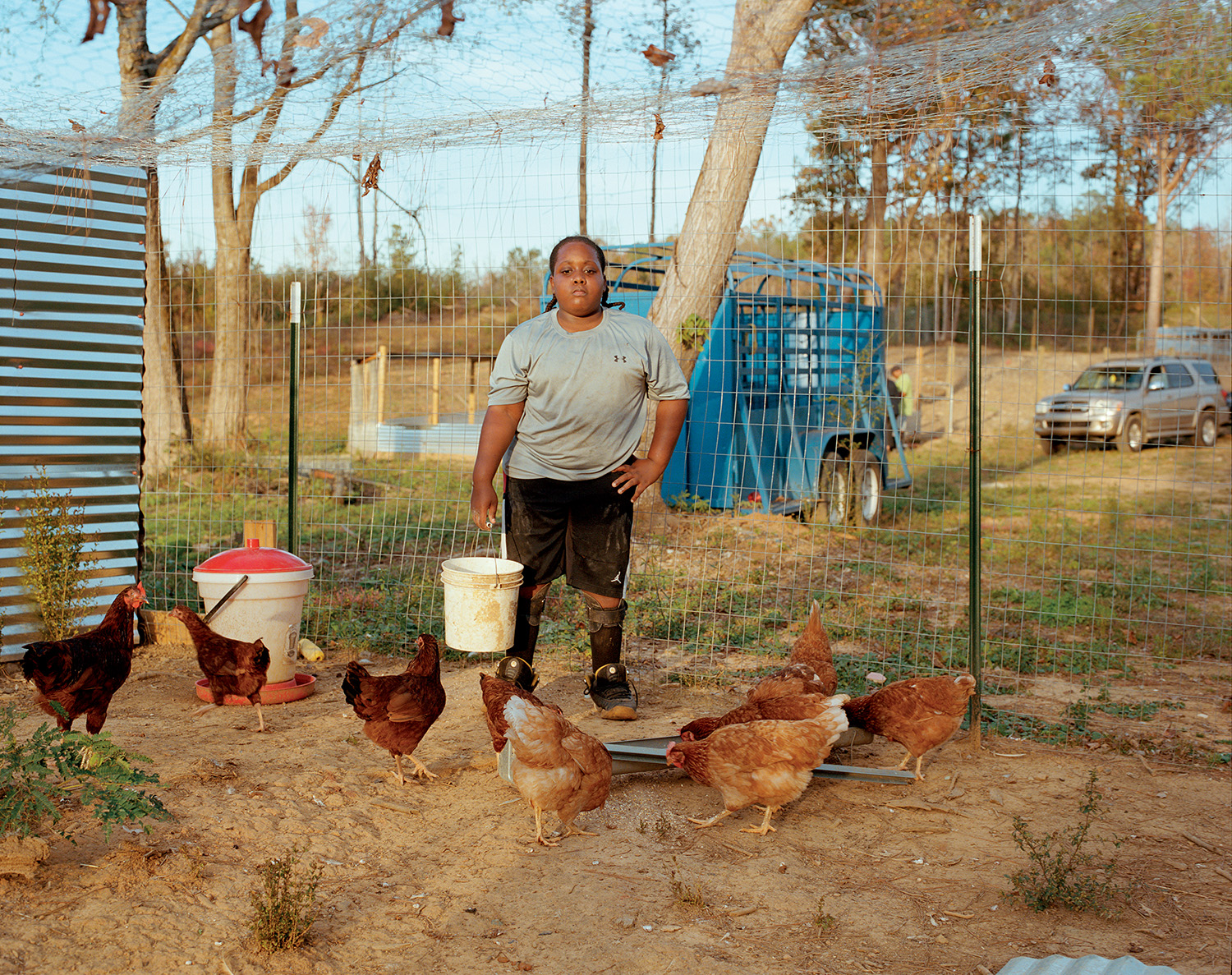
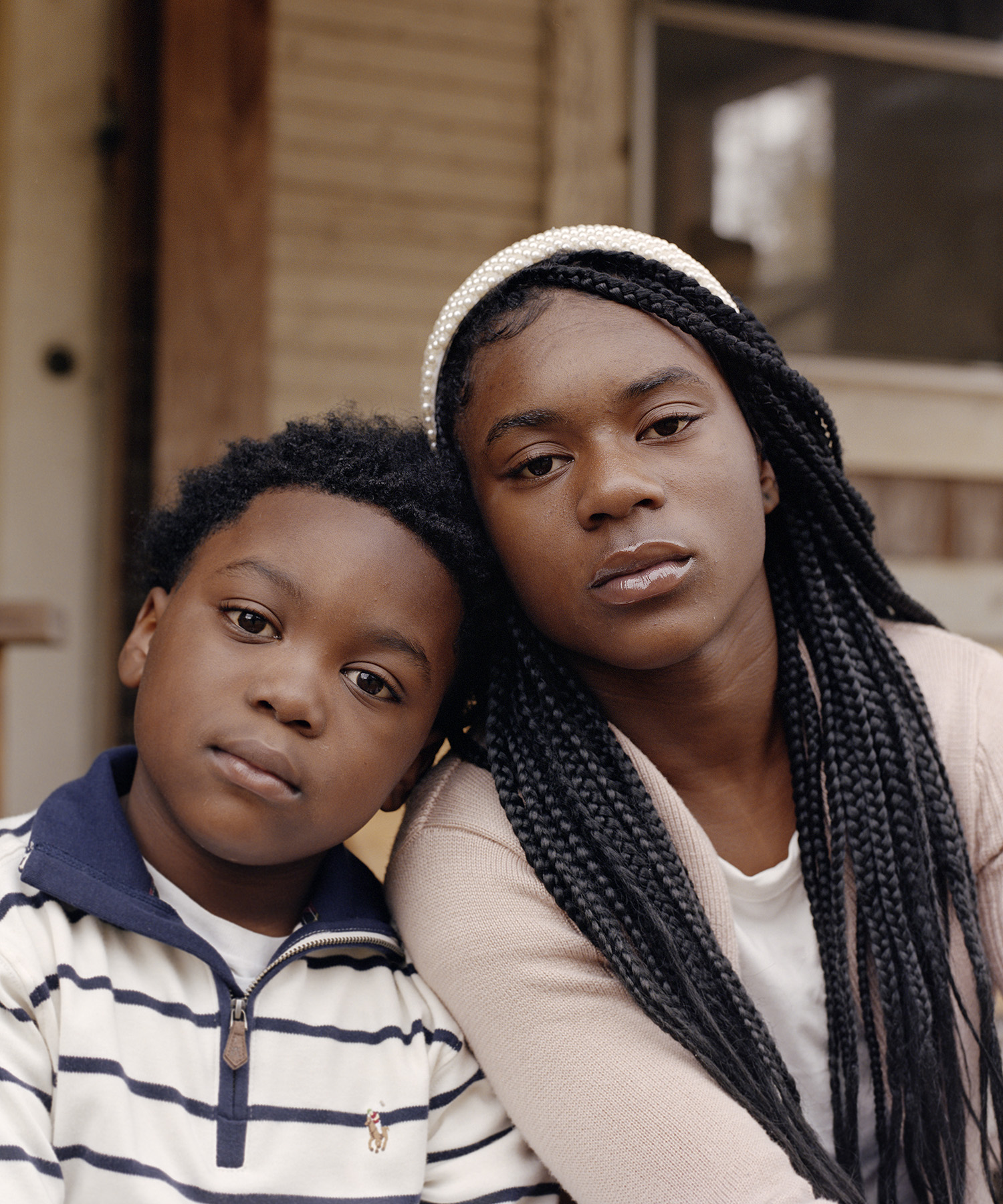

Credits
All images courtesy of Fumi Nagasaka and GOST Books.
